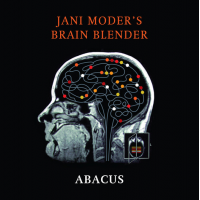Home » Jazz Articles » Interview » Bill Laswell: No Boundaries
Bill Laswell: No Boundaries
BL: They are all different. Those kind of aggressive bands are all different. Last Exit was more to do with self-destruction. I think at that moment I wasn't planning to live too long and I was just trying to kill myself anyway I could. I'm not sure the others felt that way, but they were all nuts and plying very aggressive. We survived. Some of us survived. Sonny (Sharrock) is gone, Shannon Jackson is gone now, but it was extremely aggressive and very much kind of a statement to the jazz world. I mean it was like putting the punk rock noise band in the middle of jazz festival where half of the people would walk out in disgust and the other half are elevated to another level. They start living differently. It's like it had an effect and little later on with Painkiller it was both myself and John Zorn had a big interest, fascination with hardcore music and I especially some of the Japanese hard core bands, and off course, Napalm Death was a fixture, and doing a piece of music that will last 10 seconds or something, and that's what brought Mick Harris to this band. He was the drummer of Napalm Death, so we didn't just want to kind of copy that, we went to the source of that, so that later on bands like Massacre still exist today in fact we are playing next month in Paris. Also aggressive but it developed, it's one of the few that developed and Blade Runner also can develop because the drummer has evolved tremendously since I first played with him. It's a whole different thing. He is on another level now. It's all about beginnings. Endings should be blurred. It's a cross-fade like in a sound. But, beginnings are the necessity.
AAJ: Can you describe the seeds of The Process (MOD, 2014) collaboration?
BL: Jay Bulger made the film called Beware of Mr. Baker and when he was doing that we did interviews about Lee Perry and then Ginger Baker, and for the film he also interviewed Chad Smith the drummer for the (Red Hot) Chili Peppers, and so we're both doing a little bit of talking in that movie. Somewhere along the way he ran into Jon Batiste playing live and then Chad met Jon Batiste and they were all talking about working and they brought me into it and that's kind of how it happened. When it started up he was trying to make some kind of film about musicians going into a studio and playing without any conceived music. It wasn't a new idea as I've been doing that since I was a teenager, but that's how it happened and we went to the studio, he is filming and then I saw that there was potential with some of the things and I decided to work on it and spend time. That's how it happened. Later I brought in other people to do things.
AAJ: Can you give me an insight into Chad Smith's involvement and how you both worked together?
BL: We spontaneously recorded some bass and drums just the two of us and a little bit the three of us. His concept of playing, i think was very different from what he normally does, and it kind of gave a direction to the whole thing in a way. We were conscious of references, we were conscious of influences and he was extremely conscious, i think, of Ginger Baker, because that's kind how me and him came together, was this kind of Ginger style which is not rock so much as it has to do more with polyrhythms and more of a tribal rock thing. Ginger thinks he is a jazz drummer but he is really playing kind of tribal music, in a way. I think that came a lot in the drumming and the drumming kind of gave direction a little bit to the overall focus, in a way.
AAJ: I read somewhere that Jay Bulger is working on a film about writer Paul Bowels.
BL: Last December, we all went to Morocco and I stayed for two and a half weeks -he stayed longer. He started a film. It's loosely based Paul did a book, a travel book in the '50s. He went to record indigenous music. A lot of the music that he was recording doesn't even exist now. It's gone. No one carried on with it. The book was called Their Heads are Green, and Their Hands Are Blue" and it's a travelogue of his trip. His intentions were to go to 10 different locations and record the music. And he made it, I think, to about 7 of them and out of fatigue he went back to Tangier. I did the same, I did 7, but I left because it was Christmas and I came back to New York. It's incredible footage, incredible music. I don't know what's gonna happen with the film. I don't know the business part of it, but the recordings were what we were supposed to do. Oz Fritz was the engineer and he recorded incredible music, really, for today. Even though its many years passed the time when people say music is going away, but Mahmoud Ghania, Essauira, Dalila, the whole trance ritual, Jalala music, Master Musicians of Jajouka -I played with them at the Roman ruins in Morocco. It sounds like total punk rock, with them just going crazy and they continued on. I left them in that part of Morocco and went back, but they continued on to the south, to Daklah where there's guitar players. That's where you start to hear the desert blues kind of thing. They have incredible recordings. I hope, even if the film doesn't never happen, that there is this document of these recordings, and that's what I know from Jay the last thing he did. He is always doing something but this was a great thing. The film is different than recording and it's so complicated. There is so many people involved, there's money involved. It's little different.
AAJ: As someone who has explored a lot of things, what further musical boundaries do you seek to explore?
BL: It hasn't happened yet. I'll never make it, but as far boundaries, boundaries don't exist. That's just a word. There are no boundaries. It's something that somebody said. It's like don't cross the border. How's that possible? So it's not even a thought. There is no boundaries. There is no category, there is no genre, there is no style. It's wide open, unless you are trapped. Unless you are controlled by something else. But if you are not, there is no boundary, there is no point where the line stops. There is no area that it's not explored. It's just the continuation of life as it is and it has a soundtrack, so it goes on and on and on till it stops. And when it stops it doesn't even stop. It will continue without you.
Tags
Bill Laswell
Interview
Nenad Georgievski
Sonny Sharrock
Fred Frith
Henry Threadgill
archie shepp
Herbie Hancock
Bernie Worrell
Miles Davis
Jon Hassell
Laurie Anderson
Ginger Baker
Fela Kuti
bob marley
Carlos Santana
Jonathan Batiste
john zorn
PREVIOUS / NEXT
Support All About Jazz
 All About Jazz has been a pillar of jazz since 1995, championing it as an art form and, more importantly, supporting the musicians who make it. Our enduring commitment has made "AAJ" one of the most culturally important websites of its kind, read by hundreds of thousands of fans, musicians and industry figures every month.
All About Jazz has been a pillar of jazz since 1995, championing it as an art form and, more importantly, supporting the musicians who make it. Our enduring commitment has made "AAJ" one of the most culturally important websites of its kind, read by hundreds of thousands of fans, musicians and industry figures every month.























